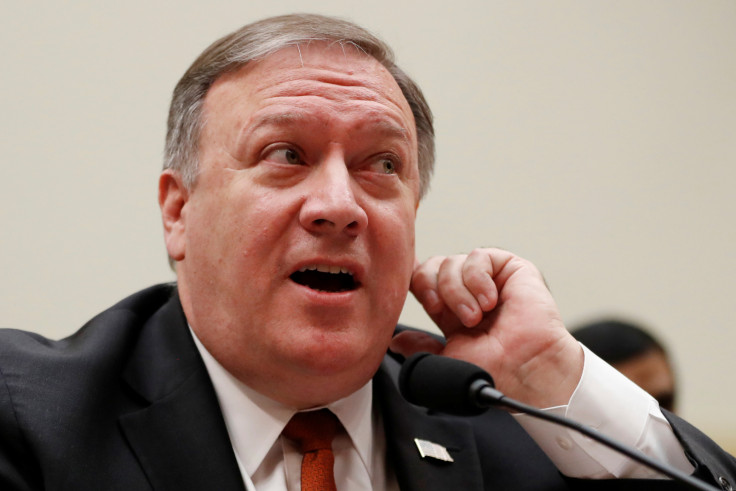'Sonic attack' on American consulate in China leaves staffer with brain injury
As tensions mount between China and the US over trade tariffs and North Korea, the suspicious episode could further strain relations.
A U.S. government employee in southern China reported abnormal sensations of sound and pressure, the State Department said Wednesday, recalling similar experiences among American diplomats in Cuba who later fell ill.
In an emailed notice to American citizens in China, the department said it wasn't currently known what caused the symptoms in the city of Guangzhou, where an American consulate is located.
"A U.S. government employee in China recently reported subtle and vague, but abnormal, sensations of sound and pressure," the notice said. "The U.S. government is taking these reports seriously and has informed its official staff in China of this event."
The worker was sent to the United States for further evaluation. "The clinical findings of this evaluation matched mild traumatic brain injury (MTBI)," the U.S. embassy in Beijing said in an email, according to a Reuters report. It added that U.S. Secretary of State Mike Pompeo told lawmakers that the "sonic attack" in China was "medically similar" to the incidents in Cuba.
China's foreign ministry and National Health Commission did not immediately respond to faxed questions about the report.
Pompeo, speaking in Washington to the House Foreign Affairs Committee, said the medical indications of the incident in Guangzhou "are very similar and entirely consistent with the medical indications of the Americans working in Havana."
He said medical teams were being sent to Guangzhou and "we are working to figure out what took place both in Havana and Guangzhou."
Pompeo is to meet on Wednesday with Chinese Foreign Minister Wang Yi. They are expected to focus on the planned U.S.-North Korea summit, but U.S. concerns about the incident in Guangzhou are also likely to be raised.

Despite hundreds of billions of dollars in annual trade between them, China and the U.S. are considered strategic rivals for influence in Asia. Tensions in the relationship frequently flare over accusations of cheating at trade, stealing of secrets, human rights and arms sales to Taiwan, a U.S. partner that China claims as its own territory.
In Cuba, the U.S. reported that some of its personnel and family members experienced a range of ailments, often after hearing an unusual sound. For most, the symptoms occurred around May 2017.
The still-unexplained incidents sparked a rift in U.S.-Cuban relations, while investigators have chased theories including a sonic attack, electromagnetic weapon or a flawed spying device.
Pompeo said he expects the results of an independent investigation into the Cuban incidents by the middle of next week.
Last October, the State Department ordered non-essential embassy personnel and the families of all staff to leave Havana, arguing the U.S. could not protect them from unexplained illnesses that have harmed at least 24 Americans.
Symptoms, sounds and sensations reportedly varied dramatically from person to person. Some have permanent hearing loss or concussions, while others suffered nausea, headaches and ear-ringing. Some are struggling with concentration or common word recall, The Associated Press has reported.
Some felt vibrations or heard loud sounds mysteriously audible in only parts of rooms, and others heard nothing.
© Copyright IBTimes 2025. All rights reserved.





















